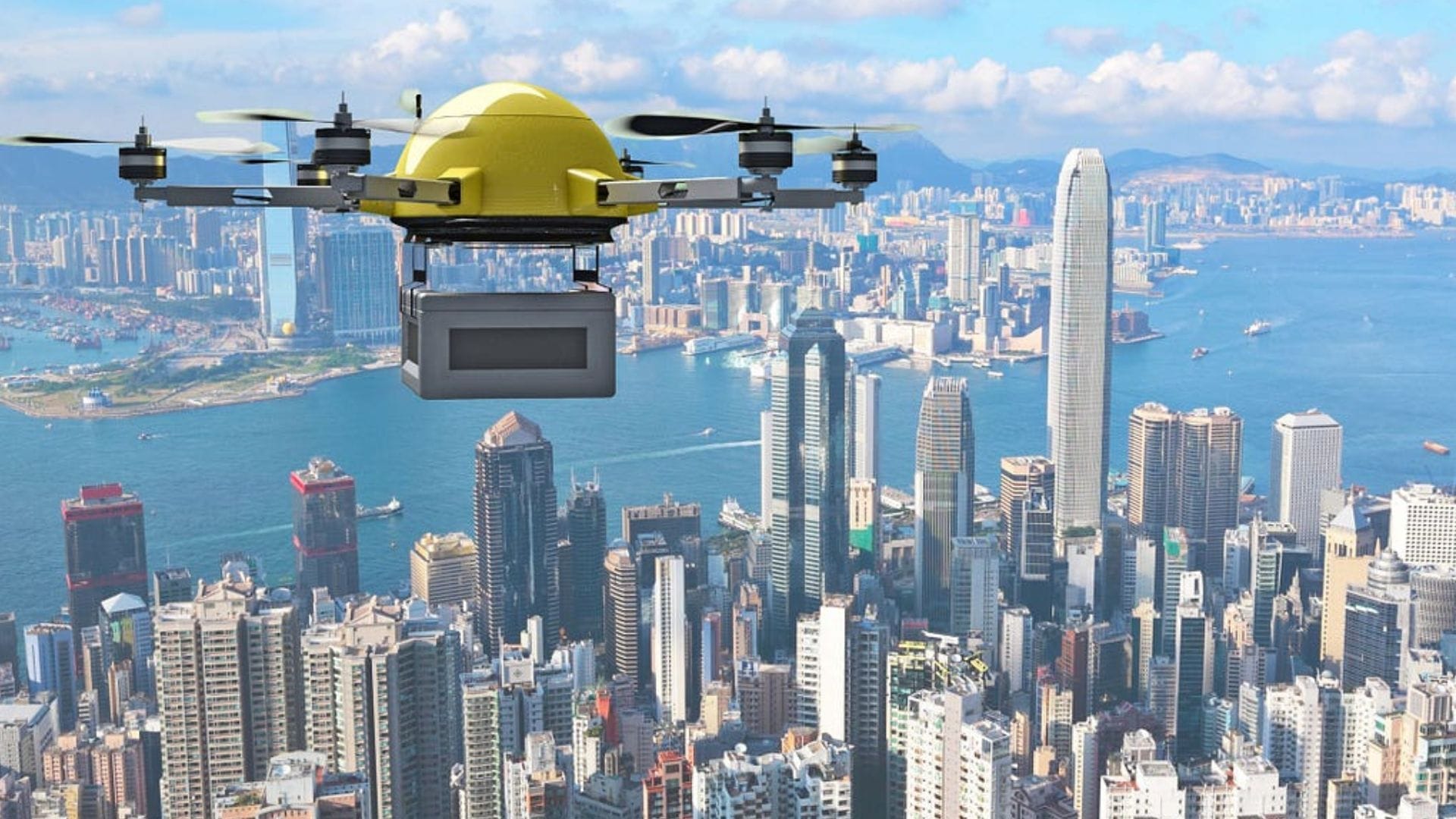Hong Kong opens skies to larger drones in bid to grow low-altitude economy
Hong Kong will allow the testing of larger drones to boost its low-altitude economy and improve logistics, following mainland China's lead.

Hong Kong is preparing for a future where flying vehicles become a regular part of daily life, with plans to allow businesses to test drones that carry heavier loads.
You’re about to see a shift in how Hong Kong handles drone technology. The government plans to let more companies trial-fly vehicles with bigger payloads to expand the city’s low-altitude economy. According to Deputy Financial Secretary Michael Wong Lun, these efforts aim to measure how much drones could improve logistics and reduce traffic congestion.
While speaking at the International Automotive & Supply Chain Expo on June 14, Wong shared these plans. The event brought together over 100 government officials, business leaders, venture capitalists, and researchers.
Wong acknowledged that not every drone venture will succeed. “Some businesses will be highly successful after they are commercialised, while some will not,” he said. Still, he emphasised the enormous potential, as the global drone market could be worth billions in the coming years.
The government is also working on changes to local laws and regulations promoting the use of larger drones. One of the most important updates would allow drones to carry heavier payloads, which could expand their commercial use across various sectors.
Testing and learning from the mainland
You may recall that Hong Kong launched a sandbox project for the low-altitude economy last November. This sandbox allows selected businesses to test their aerial vehicles at altitudes below 1,000 metres. The goal is to try out new ideas, assess airspace operations, build needed infrastructure, and fine-tune policies for electric vertical take-off and landing (eVTOL) aircraft.
Thirty-eight projects were selected for the first phase. These included services like food delivery, public transport, logistics, and urban management. According to Transport and Logistics Secretary Mable Chan, the programme’s second phase is expected to start after six months.
There’s also solid market potential. Bank of America recently projected that the global low-altitude economy would grow to US$23 billion by 2030, with over 30,000 drones in operation. That number could soar to US$61 billion by 2035 and a massive US$210 billion by 2045.
Mainland China has already made strong progress in this space. Since 2021, the central government has supported urban air mobility through new policies and funding. Several start-ups, backed by major car manufacturers, are working hard to develop flying cars to reduce urban traffic.
A vision for Hong Kong’s aerial future
You’ll likely hear more about Hong Kong’s role in this new aerial age. Xiaopeng, the founder of electric vehicle maker Xpeng and its flying-car branch Xpeng AeroHT said on June 13 that Hong Kong is perfect for the drone business. With its high population density, the city could greatly benefit from alternative modes of transport.
AeroHT’s innovation, the Land Aircraft Carrier, combines an electric minivan and an eVTOL aircraft stored in the back. Last year, the company aimed to sell 5,000 units of this hybrid vehicle at about US$200,000 each.
Mainland companies such as Hongqi (under FAW Group), Geely Auto, GAC Group and Chery Automobile are also racing to build aerial vehicles. These efforts aim to position them as leaders in the future of mobility.
Although Hong Kong has entered the field later than others, Wong said the city is ready to learn from the mainland’s experience and success. As Hong Kong prepares its drone policy and innovation blueprint, you’ll likely witness a transformation in how people and goods move across the skies of this dynamic city.
















